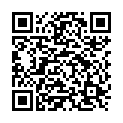|
|
|
| Module code: MST402 |
|
4V (4 hours per week) |
|
5 |
| Semester: 4 |
| Mandatory course: yes |
Language of instruction:
German |
Assessment:
Lab reports and oral examination
[updated 02.08.2012]
|
MST402 Mechatronics and Sensor Technology, Bachelor, ASPO 01.10.2005
, semester 4, mandatory course
|
60 class hours (= 45 clock hours) over a 15-week period.
The total student study time is 150 hours (equivalent to 5 ECTS credits).
There are therefore 105 hours available for class preparation and follow-up work and exam preparation.
|
Recommended prerequisites (modules):
MST101 Mechanics, Electricity, Optics
[updated 02.08.2012]
|
Recommended knowledge:
Magnetism; Physics; Lab Course 1
[updated 02.08.2012]
|
Recommended as prerequisite for:
|
Module coordinator:
Prof. Dr. Karl-Heinz Folkerts |
Lecturer:
Prof. Dr. Karl-Heinz Folkerts
Dipl.-Ing. Dirk Ammon
[updated 02.08.2012]
|
Learning outcomes:
In this lab course, students will perform experiments to consolidate the material previously covered in the lectures. The laboratory work also enables students to identify specific experimental difficulties and to learn how to rectify them. By compiling lab reports, students will learn to document their work in a form that is concise, clearly structured and comprehensible to third parties. In the final oral examination, students will be expected to provide summary reports of the experiments performed. The oral exam is designed to assess the degree to which students have understood the material and to train their verbal skills.
[updated 02.08.2012]
|
Module content:
Eight experiments are performed:
- Geometric optics
- Light polarization
- The laws of radiation
- Electron and x-ray diffraction
- Magnetism
- Diffraction and interference
- The Hall effect
- Electromagnetic oscillations and resonance
[updated 02.08.2012]
|
Teaching methods/Media:
Supervised laboratory course
[updated 02.08.2012]
|
Recommended or required reading:
Hering, Martin, Stohrer: Physik für Ingenieure; Springer Verl.
[updated 02.08.2012]
|


